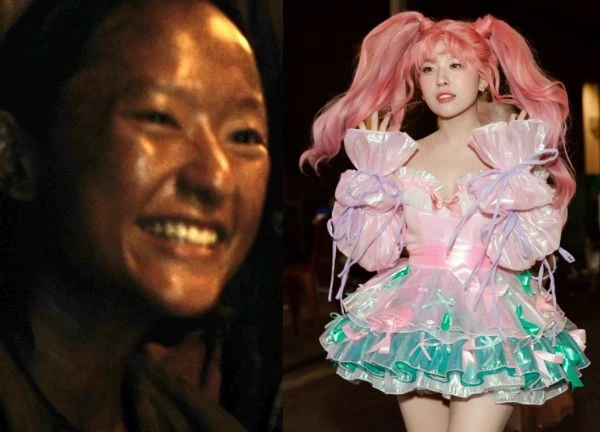Nguyen Quang Dung: dropped out of school, now a director of a hundred billion dollar film, dating a young lover

2 | 0 Discuss | Share
Phan Huynh Dieu is a big name in the Vietnamese music scene, loved for his songs about his homeland and love between couples. He is also one of the people who makes red music so catchy and attractive.
Musician Phan Huynh Dieu was born in 1924 in Da Nang, is a popular name known to people; For more than half a century, he has impressed in the hearts of generations of the public, deeply impressed by many famous songs, living forever with time.
Musician Phan Huynh Dieu is known as the golden bird of Vietnamese music - in more than 75 years of musical activity, he left more than 100 works, many of which are famous songs that left a deep impression on the public.
His music echoes for decades with pompous melodies, always containing an optimistic, beautiful spirit, deep sweet love songs and immortal children's songs. For his great contributions to the country's music scene, in 2000, the musician was honored to be awarded the Ho Chi Minh Prize for literature and arts.
Some of his songs have become too familiar to music lovers, such as: "National Guard", "Night stars", "Love in a card", "It's hard to say", "Day and night march", "Life is still beautiful", "Yarn remembers spear yarn", "I'm at the head of my river at the end of the river", "At both ends of nostalgia", "Where are you tonight?",...
Considered as the "leading bird" of the country's music in the 20th century. Phan Huynh Dieu once said that from the opening work of his career, the song "Betel Cau" (1945) onwards, his songs are mainly love songs about couples and the homeland. And almost none of the songs the musician wrote out of a mood of sadness or frustration.
"I only compose music when I feel happy and optimistic in my heart because I want to transmit that to listeners. In my head I never stopped playing the melody, in my heart never stopped loving. Now that I'm old, I don't have a lover anymore, I love life, I love nature...," he said.
Many people may not belong to them all, but they probably know and love these songs. Phan Huynh Dieu's music has many unique and special points. With the exception of the song "National Guard Corps" composed before the 8th Revolution and an anti-American era composition under the pen name Huy Quang entitled "Going to the frontline", he almost exclusively wrote love songs (songs about couple love).
The outstanding feature of the love songs of the musician of Quang Nam origin is that they always associate the love of men and women with the social context and the situation of the country, but the song has a very soft, romantic melody, not a little tendoned, dry like some other works.
As a person who went through both the resistance wars against France and America of the nation, became a soldier in the 40s raining bombs and bullets, witnessed the patriotism and heroic sacrifice of his comrades, musician Phan Huynh Dieu has written songs that have entered the hearts of generations of music lovers.
The musician joked that he was "deaf and not afraid of guns" because he dared to compose music from a time when he was not well educated, but mainly based on emotions in life, literature and poetry.
Many of his love songs sparked optimistic belief in the bright future of human destiny and the country such as: Night stars, Life is still beautiful, Boat and sea (Xuan Quynh poem), Singing about the hometown ... In it, the song "Life Is Still Beautiful" was born in the 1970s during a time when he was in hospital while on the battlefield.
"At that time, I only had skin covered in bones, but thanks to the care of a nurse, I got better and better. By chance reading Duong Huong Li's poem, I was inspired to compose Life Is Still Beautiful. The first person to sing this song was artist Quoc Huong. He was also in the hospital, there was a new song I gave, he sang it to make the whole hospital excited," Phan Huynh Dieu said.
No matter what he writes, he writes in the form of love songs and has a lasting life in the hearts of generations of people of all ages and subjects. The proof is that during the performances, many young singers expressed their love for light music, while singing many songs of Phan Huynh Dieu.
He is also one of the musicians who has made "red music" more attractive and attractive than any other music. Anyone with some knowledge of music will see that he writes songs almost exclusively in the minor (mineur) and mostly exclusively for solos.
Even the two songs "Day and Night March" and "Life Is Still Beautiful", although more or less marching, still show the color of solo rather than collective singing. An easy point to notice in this musician of Quang is his knack for disseminating poetry. Most of his songs feature other people's poetry. He was one of the most prolific and successful composers of poetry, a master in this field.
In 1946, Phan Huynh Dieu joined the nationwide resistance movement. In 1955, he moved north and began his musical education. Since 1957, he has been a member of the Standing Committee of the Vietnam Musicians Association. In 1988, he was awarded the Order of Independence 3rd class.
During this period, the musician continuously released songs, especially popular songs memorized by many generations such as: My hometown in the South (1954), Love in a card (1955), Night stars (1962), The shadow of the Konia tree (1971), Life is still beautiful (1971), Day and night march (1972), I'm at the Head of the River (1978), Boats and the Sea (1981) ... In 2000, he was awarded the Ho Chi Minh Prize for Literature and Arts by the State.
Phan Huynh Dieu is a musician in the banyan tree generation, but there are still many young people who love it. He was 91 years old (born in 1924 in Quang Nam), but when he entered the age of 80, he still produced many good love songs, still very "angry" with the public.

2 | 0 Discuss | Share

2 | 0 Discuss | Share

4 | 0 Discuss | Share

3 | 0 Discuss | Share

2 | 0 Discuss | Share

3 | 0 Discuss | Share

4 | 1 Discuss | Share

0 | 0 Discuss | Share

4 | 0 Discuss | Share

3 | 0 Discuss | Share

3 | 0 Discuss | Share

2 | 0 Discuss | Share





4 | 1 Discuss | Report